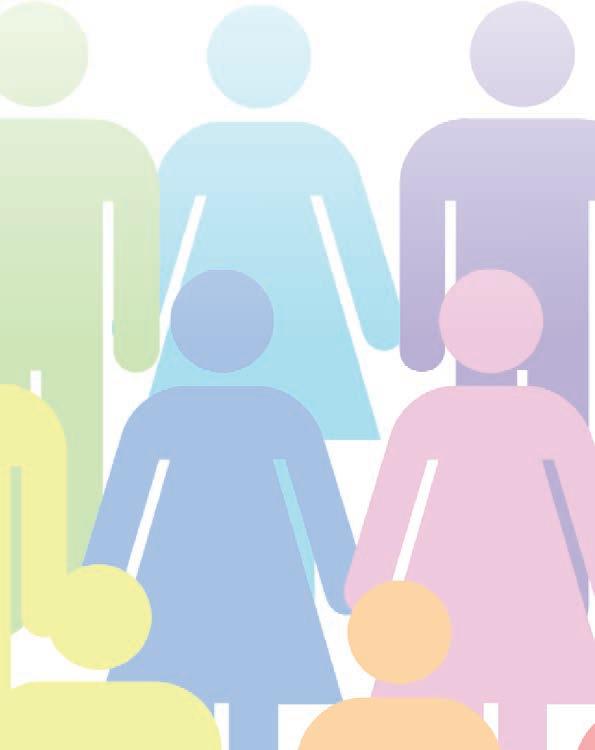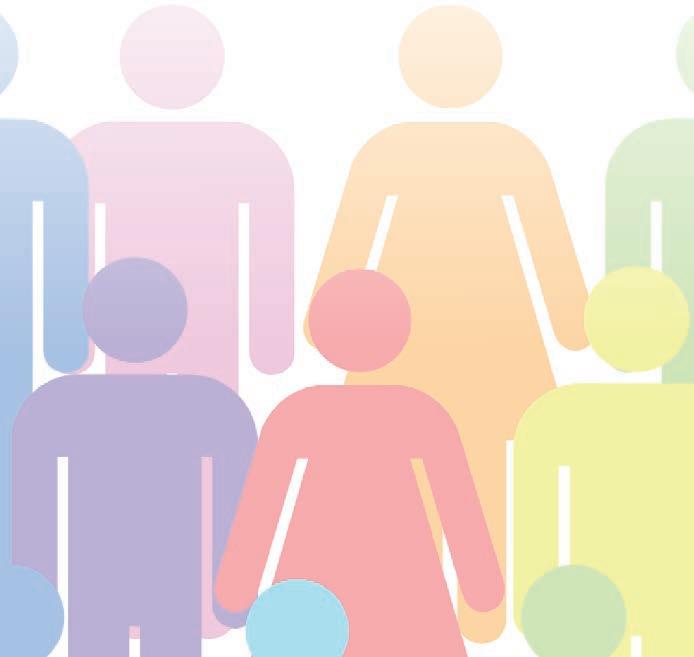
4 minute read
EXPLORING SEXUALITY
Exploring sexuality in queer orientations
Experts, members of LGBTQ+ community describe sexual, social changes when adjusting to college life, new identities
By Aubrey Vogel
@aubrey_vogel
College is typically the first time many students have complete responsibility for themselves. They become responsible for deciding what they eat, where they live and oftentimes with whom they are sexually active.
Texas A&M LGBTQ+ Pride Center coordinator Frances Jackson said college is a time of change for all students, but especially students in the LGBTQ+ community who are able to explore identities they may not have been able to before.
“Coming to college is a time for all students to challenge religion, political [views], all of their belief systems [that they grew up with],” Jackson said. “Oftentimes, [this is the] first time away from home, away from the set structure they’ve had for 18-plus years, and so it allows them to explore all parts of their identity.”
Pride Community Center treasurer Rick Burgess said in an email to The Battalion that upon leaving home, many students try to find out who they are as individuals when leaving their parent’s reign.
“There is nothing magical about college that suddenly makes you explore your sexuality. That is something that people typically already have a clue about, and they are finally at a point to where they can be themselves,” Burgess said in the email. “For LGBTQ+ people that had to hide who they are, college may be the first opportunity that they have to be their true selves.”
For students who have not yet come out to their family or friends, Burgess said they should make sure they feel safe and prepare the message they will share. Burgess said often, the conversation will go better than an individual expects, though sometimes people may say something mean or unintentionally hurtful.
“Expect the people [you] are coming out to to have a lot of questions. You don’t have to answer all of the questions yourself, but it’s good to have resources for further discussions,” Burgess said. “Keep in mind that while you’ve had time to reconcile these things for yourself, your friends or family might have never thought about these things before.”
Assistant professor in the Department of Health and Kinesiology Christopher Owens said in an email to The Battalion because there is stigma surrounding the LGBTQ+ culture, some individuals may feel the need to be on a hook-up app, which may be the only place they can meet people with similar sexualities.
“Some LGBTQ+ people, especially those who live in nonurban and rural spaces, do not have an LGBTQ+ community center; LGBTQ+ bar or club; or LGBTQ+ social groups to meet people. In addition, some LGBTQ+ people might be on hook-up apps because their local environment is unaccepting of the LGBTQ+ community,” Owens said. “There might be physical, emotional and social repercussions from showing physical displays of affection, such as violence, slurs and negative friend interactions.”
Burgess said students who are not out to their friends may feel pressure to hide their sexuality, impacting their mental health. Burgess said those who are not out are less likely to participate in hook-ups than those who are out.
“Those that are having to be discreet are probably less likely to be participating in hook-ups than those that are out for privacy and self-preservation reasons,” Burgess said. “Being closeted itself doesn’t make you more or less likely to seek out hookups, but it does limit your ability to form healthy relationships of all types.”
Jackson said though A&M has a negative reputation regarding acceptance of the LGBTQ+ community in the past, they believe A&M has made strides. The community has seen representation with the addition of the Pride Center as well as various student organizations, and supportive bills in the Student Senate.
“The student organizations have grown in the past five years. When I got here, there were four, and we now have nine on the [Pride Center] website,” Jackson said. “We’ve seen growth in student organizations, so [we are in the process of] building a [larger] community of support here on campus.”
Jackson said there are a variety of ways for students who identify themselves as members of the LGBTQ+ community to find support, including visiting the center, joining LGBTQ+ friendly student organizations and even finding allies and community members on campus with stickers the center provides.
“One of the really cool things with our stickers [is] by taking [a] rainbow cake or rainbow pride flags and putting it on your water bottle or your laptop or wherever you choose to display it, it shows there are a lot more folks [who are] accepting and welcoming,” Jackson said. “[Someone] may see [the sticker], may strike up a conversation in the library [or] the MSC. It is a nonverbal way that folks can show, ‘Hey, I’m a member’ or, ‘I’m supportive of members’ and LGBTQ folks start to [form] their family sporadically.”
Burgess said the center offers various support groups for individuals in the community.
“We have a gender affirming support group, which is really for anybody that is questioning their gender and needing a group to talk about [their thoughts],” Burgess said. “We’ve got our sexuality [and] a feminist support group, [which is] a mix of gay, lesbian and bi[sexual] folks that come together, and we talk about sex.”














